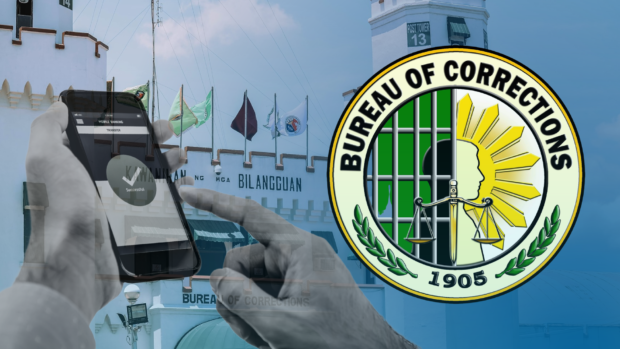
MANILA, Philippines — Thirty Bureau of Corrections personnel have been preventively suspended following the ongoing investigation regarding the handling of money sent to inmates by their relatives using the mobile wallet app GCash.
“We are investigating 30 personnel. There is an ongoing investigation, and we, already preventively suspended the 30 guards,” Catapang told CNN Philippines Wednesday.
An investigation was conducted after seizing over P300,000 cash hidden in a prison guards’ locker which were proceeds of the supposed GCash scheme.
Under the scheme, a relative of an inmate will send a money via GCash through the prison guard. The prison guard will deduct 12 percent to 20 percent of the amount before giving it to the inmate.
An inmate personally appealed to acting Bureau of Corrections (BuCor) chief Gregorio Pio Catapang Jr. to talk to the one in charge of their money to reduce the deductions.
“We will file the appropriate charges against them,” he added.
Inmates or persons deprived of liberty, according to Capatapang are allowed to have a maximum of P2,000 for food and medicine. There are stores within the prison facility which are manned by the inmates themselves.
“Right now, this problem is cropping up because the PDLs (Persons Deprived of Liberty) are having a hard time coping with the food and medicine allowance. They are only alloted P70 each per day for food and P15 for medicine so they really cannot cope with. Some of the PDLs here are also so old they have to buy diaper and medicines. So, we are tolerating it but not allowing excessive money,” Catapang said.
He said the PDL who want to avail of the set-up should register with the BuCor first to be allowed to receive money from their families through GCash.
But he said some enterprising prison guard allowed the GCash transaction to be coursed through them since inmates are not allowed to have phones inside.
Aside from the investigation and the possible filing of charges against prison guards, Catapang said BuCor will also implement reforms with regards to the provision of money to the inmates.
“Gagawan natin ng sistema na ýung nagpadapala, kailangan pupunta siya sa office, i-register niya ‘yung pera na pinadala, at siya mismo ang mag-aabot doon sa PDL pero may magwi-witness. Ilalagay sa logbook, ibi-video lahat ng transaction para sa ganon, hindi na maulit ‘yan o mahinto na ‘yan,” he explained.
(We will create a system wherein the sender of the money must go to the office, register the money being sent, and give it personally to the PDL. There will also be a witness and the transaction will be put on a log book, recorded on video so that the scheme will not happen again).
Remulla said the money-handling scheme does not only happen in the NBP but in other detention centers across the country.
Aside from the NBP, BuCor also operates six other penal colonies nationwide — Davao Prison and Penal Farm, Iwahig Prison and Penal Farm in Palawan, San Ramon Prison and Penal Farm in Zamboanga, Sablayan Prison and Penal Farm in Occidental Mindoro, Leyte Regional Prison and the Correctional Institute for Women in Mandaluyong City.